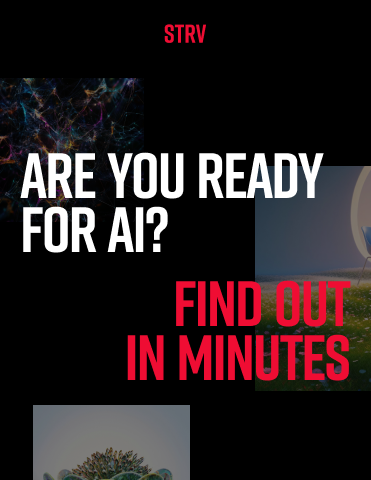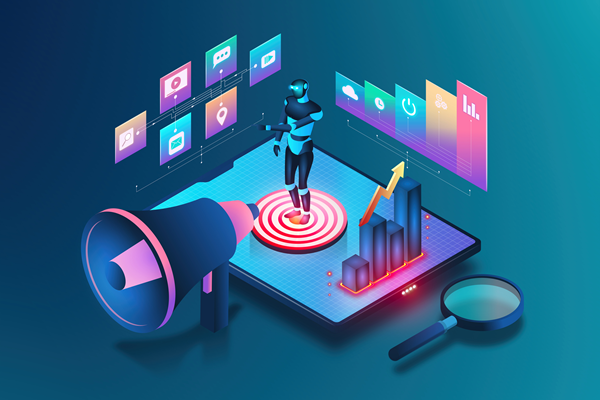Digital procurement transformation creates a powerful competitive advantage across industries
Sponsored by Tradogram
Long considered a transactional, back-office function responsible for minimising organisational spending in the acquisition of goods and services, procurement is on the verge of a dramatic reformation.
Covid-19 has revealed deep inefficiencies in the global supply chain, highlighting the fact that procurement remains among the last functions to undergo full digital transformation. Governments pointed to antiquated operational processes and technology as the cause of widespread shortages of consumer goods, record price increases on basic necessities, and subsequent inflation spikes around the world.
Was this a smokescreen to deflect criticism of deeper, systemic problems in global commerce? Perhaps, to an extent: many variables contributed to the inflation rates we see today. Regardless, this criticism acted as a wake-up call for businesses, governmental bodies, and non-profits of all types. Digital procurement transformation is no longer an option, it’s a business imperative.
Compelling incentives and key considerations
Digital transformation is a complex undertaking that must be executed with precision. If done properly, the rewards far outweigh the cost and effort involved. It’s critical to remain focused on the benefits and not get lost in the process because digital transformation is a marathon, not a sprint.
Factors defining digital procurement transformation and the future of business spend management include:
1. Process automation and reduced project expenditure. Cloud-based procurement and spend management solutions automate time-consuming, manual processes such as approval routing, freeing up time to focus on relationship building and strategy. These solutions also capture loads of data, generating actionable insights that reveal inefficiencies, increase productivity, cut costs and reduce overall project spend.
2. Data-driven decision making that depends on correct data usage. Despite data’s transformative power, poor data usage continues to plague many procurement organisations. “If procurement was scrutinised to the same extent as other internal functions, there would be lean consultants crawling all over it,” said James Meads, leading procurement technology expert and digital transformation consultant. “Much of the waste caused by poor data and manual administrative processes in procurement often goes overlooked, generating an invisible cost to the business.” Digital procurement transformation facilitates better data usage, which eliminates wasteful spending and leads to smarter business decisions.
3. Improved communication, collaboration, and transparency in the post-Covid era. Procurement solutions illuminate any blind spots in the supply chain, leading to improved transparency, easier communication and better collaboration at each touchpoint along supply routes. All the above flows through one centralised system. The best solutions integrate with an organisation’s other IT systems, creating one source of data truth for all internal teams. Moreover, with more employees now working remotely, digital solutions bridge the physical divide with built-in requisition capabilities that improve cross-functional collaboration with procurement teams.
4. Diversifying supplier networks and sourcing closer to home. Many procurement teams were burned in the early days of the pandemic – in some cases, all their suppliers were in a country that was locked down. Diversifying supplier networks will minimise the risk of shortages and ensure dependable consistency in the flow of goods and services in the future. Working with suppliers closer to your centre of operations further minimises risk and allows you to form strategic ordering partnerships with peer organisations.
5. Focusing on sustainability and environmental and social governance (ESG). Younger generations now represent the majority of global consumers and, in many cases, the stakeholders that businesses and nonprofits answer to. Younger consumers often have a strong sense of environmental and social responsibility and increasingly demand sustainable and socially responsible sourcing practices. This represents a major opportunity for procurement to evolve from a cost-centre into a strategic revenue engine.
6. Procurement that shifts from transactional to strategic. In the coming years, we expect procurement to become an indispensable strategic function with considerable decision-making power. By partnering with sustainable, socially responsible suppliers and leveraging transport routes that minimise environmental damage, procurement will play a major role in maintaining a strong, positive brand reputation. We’ll see procurement collaborating closely with marketing and human resources to spread the word about the positive impact they deliver to the communities they serve. This will generate loyal consumers and attract top tech talent.
7. Easier compliance with government regulations. In the wake of Covid, there’s a high probability that governments will introduce new, stricter purchasing regulations. Digital procurement management software lets organisations implement formal procurement policies with built-in workflows that hold teams accountable for adherence. This, in turn, ensures compliance with any new regulations that appear.
The financial gains from digital transformation
When you combine the factors above, you begin to see the distinct advantage digital procurement creates. Current data tells us fully digital companies enjoy a 1.8x increase in annual earnings growth and a 2.4x increase in overall enterprise value.
This alone underscores the need to begin digital transformation today. Organisations that continue to delay will inevitably fall behind the competition and may ultimately fade into the background. Furthermore, there’s no valid reason to delay any longer: technology will continue to advance and open up new opportunities for procurement to drive revenue and deliver value, not simply reduce costs.
Global changes call for a new era of procurement management
The changes Covid has forced upon us, such as social distancing, were temporary, not a “new normal”. But history shows us that new threats to supply chains are never far from emerging. Over the past two decades, we’ve seen outbreaks of SARS (a coronavirus), avian flu and swine flu. HIV showed up in 1981 and Ebolavirus in the 1970s. Moreover, natural disasters are a constant threat to supply chain fluidity.
“As global population, connectivity, and environmental degradation continue to grow, so too does the ever-present risk of another global pandemic, which could very conceivably be even more devastating or more challenging to manage than COVID,” said COVID expert, Dr. Kris Murray, Professor of Environment and Health at Imperial College London’s School of Hygiene and Tropical Medicine, MRC Unit in the Gambia.
Procurement enters the era of customer and employee experience
Customer and employee experience have never been as important to business success as they are today. But what about supplier and partner experience? It all matters in a post-Covid context where human interaction has taken on increased importance. And with procurement poised to take centre stage across industries, “procurement experience” will soon become a commonly used phrase.
“Procurement has finally begun to think about what it delivers in terms of experience as well as savings and value,” said Kelly Barner, top procurement influencer, thought leader, and author. “Everyone that engages with procurement teams receives a unique experience, whether teams consciously create it or not. Procurement leaders must be purposeful about ensuring that those experiences leave a positive impression and generate the business results they seek.”
Final thoughts and next steps
The procurement organisation of tomorrow will look quite different than it does today, assuming a strategic decision-making role in organisations across industries. The procurement and business spend management tech space is forecast to experience “massive growth” over the next seven years, due to increased demand as more organisations kick off transformation initiatives. Organisations that further delay digital procurement transformation will fall quickly behind the competition. The writing is on the wall: the time to start your procurement transformation is now.
Need some guidance to help kick off your digital procurement transformation? Our free guide to digital procurement transformation can act as a roadmap to keep your efforts on track. Get your copy of the guide today.

Business Reporter Team
Most Viewed
Winston House, 3rd Floor, Units 306-309, 2-4 Dollis Park, London, N3 1HF
23-29 Hendon Lane, London, N3 1RT
020 8349 4363
© 2025, Lyonsdown Limited. Business Reporter® is a registered trademark of Lyonsdown Ltd. VAT registration number: 830519543





